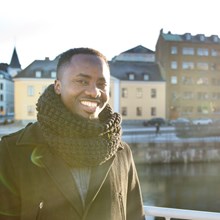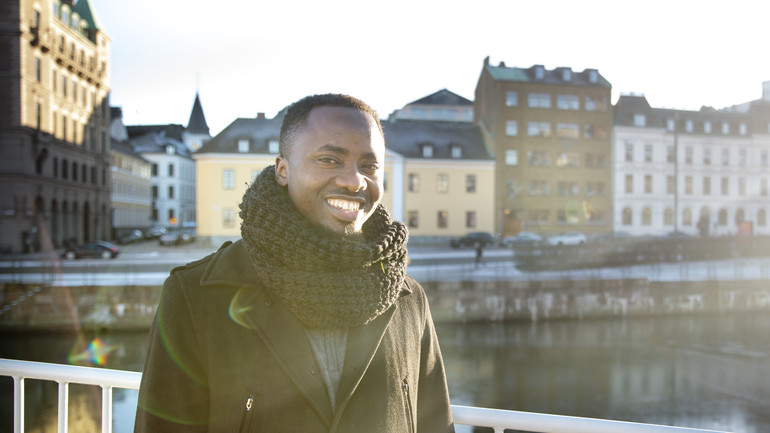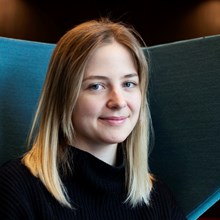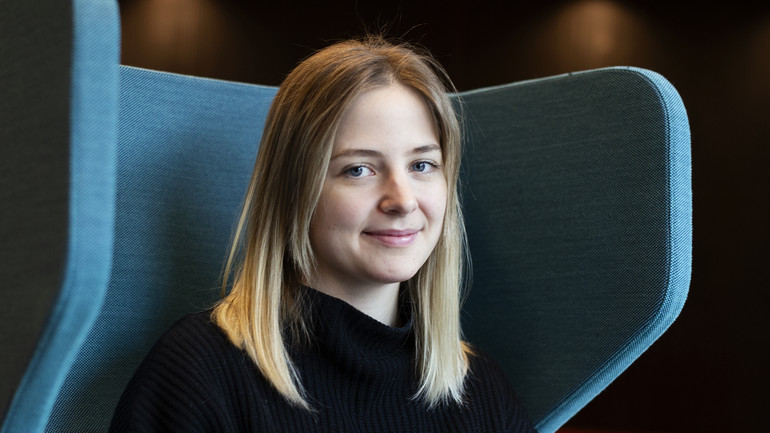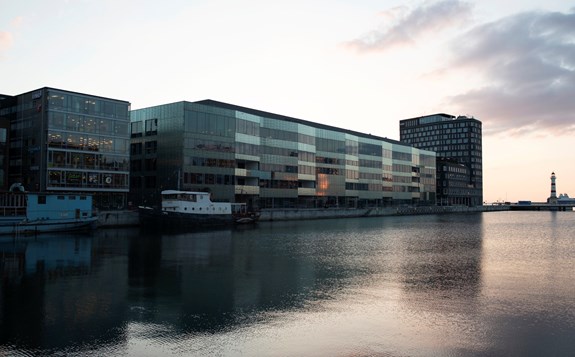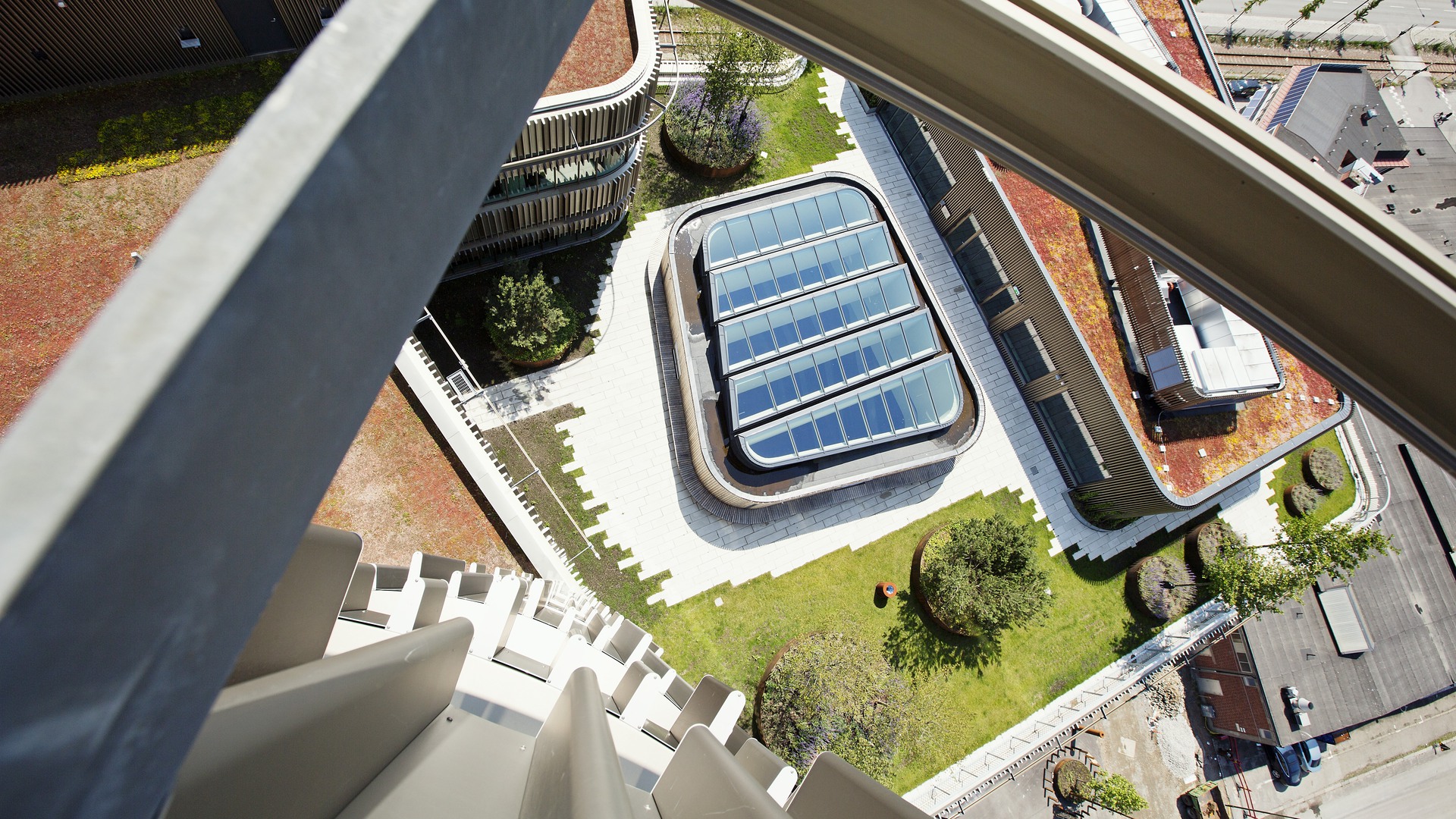“I want to contribute valuable insights to address the challenges faced by urban environments worldwide”
Callixte Dushimiyimana's decision to pursue the Urban Business and Development programme was fueled by witnessing the need for passionate urban development professionals in different community development projects. Growing up in Rwanda with post-genocide societal problems sparked his desire to make a contribution to restoring the country's sense of life. In the programme, he now gains insights into the interplay of real estate and transportation in crafting sustainable cities.
What did you do before enrolling in the master’s programme Urban Business and
Development – Real Estate and Transport?
Talking about what I was doing before my master's studies requires me to recount my background. I was born and raised in Rwanda in the aftermath of the 1994 Genocide Against Tutsi. Growing up with post-genocide societal problems raised my desire to make even a small contribution to restoring the country's sense of life. This led me to dedicate most my time to my studies and community work through different civil society organisations.
Since 2009, I have been an active member of AERG (Genocide Survivors Student Association), an organisation represented in almost all high schools and higher education institutions in Rwanda. I’ve held leadership roles within the organisation, including being a member of the National Executive Committee, where I was responsible for information, documentation and memory from 2016 to 2018.
Towards the end of my bachelor’s studies, I joined Tower Property Consultant Ltd, a real estate startup, where I focused on real estate and valuation. Drawing from my engagement in civil society activities, I also became an employee of Unity Club Intwararumuri. This club serves as a forum for current and former Rwandan cabinet members and their spouses to network and collaborate in addressing post-genocide Rwandan community issues. My responsibilities centred primarily around communication, and I later took on the role of a project officer in a youth involvement project.
Why did you choose this programme?
My interest for this programme originated from a couple of reasons. Firstly, I observed the need for a new generation of urban development professionals with enthusiasm for solving urban problems while participating in different community development projects. This included one project involving the construction of model villages around Impinganzima homes for elderly people widowed by the Genocide Against Tutsi. The second reason was the focus of my bachelor's thesis, which explored the impact of traffic congestion on property values. With the interest I had already developed in urban development, particularly real estate, I found it irresistible to apply for this programme.
What do you learn at the programme?
The programme combines urban studies, business and development strategies, providing an understanding of the dynamics of urban development and how different stakeholders, including private, public and civil society sectors, are involved in city development. Specifically, the programme places a greater emphasis on the intersection of real estate and transportation within urban environments and offers insights into how these elements impact the development of sustainable cities. It also provides the opportunity to conduct projects within credible companies in Malmö, where you can apply your acquired skills in practice and enhance your understanding of potential knowledge gaps.
Which courses and moments have you liked the most so far?
I liked the course on strategic management and service innovation, especially the part of design thinking for service innovation. It helped me understand how a human-centric approach can be utilised to solve complex problems in the community and to create meaningful, user-focused services.
I also particularly enjoyed the exchange week with students from Groupe ESPI – France. I liked the vibrant social atmosphere that characterised all activities, including class seminars and field visits.
What do you want to do after graduation?
After graduation, I’m seeking a position that not only allows me to develop my skills but also enables me to pursue research on global urban affairs, addressing the challenges faced by urban environments worldwide. My main aspiration is to find a PhD position where I can contribute to the development of research-based innovative solutions, particularly focusing on housing disparities, sustainability and the overall wellbeing of urban communities.
